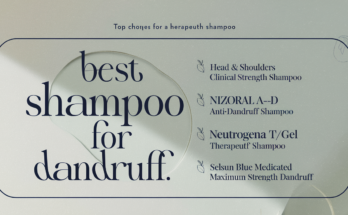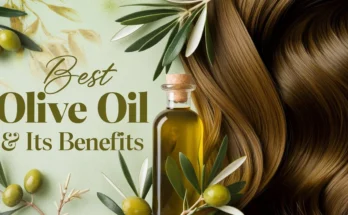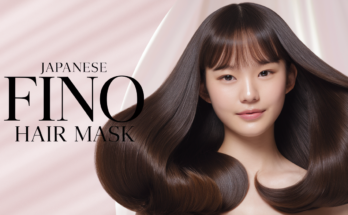
Do you find yourself battling greasy roots and flat hair just a day after washing? If so, you’re not alone—many people with oily hair struggle to keep their locks looking fresh. But don’t worry, the right shampoo for oily hair can make all the difference! In this guide, we’ll explore some of the best shampoos for oily hair, what to look for in an ideal product, and actionable tips to help you manage oily hair with ease. Let’s dive into everything you need to know for achieving that fresh, clean look!
Understanding Oily Hair: Why Does It Happen?
Oily hair isn’t just a minor inconvenience; it can affect your confidence and limit your styling options. To help you find the right solutions, let’s explore why oily hair happens in the first place and identify the symptoms you should watch for to ensure you’re using the best shampoo for oily hair.
Symptoms of Oily Hair
Oily hair comes with some noticeable signs that go beyond a greasy scalp. Recognizing these symptoms can help you confirm if your hair is indeed oily, allowing you to target the issue more effectively with the right products and care routines:
- Greasy Scalp: Hair appears oily or greasy at the scalp shortly after washing, often within 24 hours or even sooner.
- Flat and Limp Hair: Excess oil can weigh down hair, making it appear flat, lifeless, and difficult to style.
- Frequent Washing Required: If you find that you need to wash your hair daily or feel uncomfortable skipping a day, it’s a sign that oil buildup is a persistent issue.
Oily hair is often accompanied by an uncomfortable, itchy scalp due to the excess oil and buildup. Being aware of these symptoms helps you know what you’re dealing with and lets you choose the right products and techniques to manage them.
Causes of Oily Hair
Oily hair generally stems from an overproduction of sebum, which is the natural oil produced by sebaceous glands in the scalp. Sebum is essential for hair health, but when it’s produced in excess, it can leave hair looking greasy and unmanageable. Here are some common reasons for overactive oil production:
- Genetics: If your family has a history of oily hair, chances are you might experience it too. Genetics play a significant role in determining how much sebum your scalp produces.
- Hormonal Changes: Hormonal fluctuations during puberty, menstruation, pregnancy, or menopause can impact sebum production, causing your scalp to produce more oil than usual.
- Product Buildup: Using heavy conditioners, hair masks, or products with silicones and oils can cause buildup on the scalp, making the hair appear greasier.
Knowing these causes allows you to make more targeted choices in your hair care routine. Understanding the root cause will help you pick products that are not only designed for oily hair but also address the specific needs of your scalp.
What to Look for in a Shampoo for Oily Hair
Not all shampoos are created equal, and some can even worsen the problem by leaving residue or stripping essential oils, which can trigger more oil production. Here’s what you need to consider when choosing the best shampoo for oily hair:
Clarifying Ingredients
Look for shampoos with ingredients known for their clarifying properties. Ingredients like tea tree oil, rosemary extract, apple cider vinegar, or activated charcoal work to deeply cleanse the scalp, removing excess oil, dirt, and product buildup. These ingredients provide a deep cleanse that’s essential for managing oily hair while keeping your scalp feeling fresh and balanced.
- Tea Tree Oil: Known for its natural antibacterial and antifungal properties, tea tree oil helps cleanse the scalp without stripping essential moisture.
- Activated Charcoal: Charcoal can lift away dirt and impurities, providing a deeper clean that’s perfect for oily scalps.
By choosing a shampoo for oily hair with these ingredients, you’re giving your scalp a break from oil and buildup, making it easier to maintain clean, manageable hair.
(Related: Check out our article on Tea Tree Mint Shampoo for more about how tea tree oil can help manage oily hair.)
Balancing pH
A shampoo for oily hair with a balanced pH can help prevent the scalp from producing too much oil. The natural pH of your scalp is slightly acidic, around 5.5. When the pH level of hair care products is too high or too low, it can disrupt this natural balance, leading to either excessive dryness or oiliness. Opt for a pH-balanced shampoo designed to respect your scalp’s natural environment, helping you keep oil production in check.
A well-balanced pH shampoo allows you to clean your hair without disturbing the delicate ecosystem of your scalp, which is key in keeping excess oil at bay.
Sulfate-Free Options
Sulfates are common in shampoos and are responsible for creating a lather, but they can be too harsh for oily hair. These chemicals, such as sodium lauryl sulfate, can strip away the scalp’s natural oils, leading it to overproduce sebum as a defense. This can create a cycle where your scalp compensates by producing even more oil after each wash. A sulfate-free shampoo for oily hair provides a gentler cleanse that still removes oil and dirt without over-drying your scalp.
By choosing a sulfate-free option, you give your hair the gentlest clean possible, helping to avoid the “rebound” effect of oil overproduction.
Top Shampoos for Oily Hair in 2024
With a clearer understanding of what to look for, let’s explore the top shampoos for oily hair this year. Each of these options offers specific benefits tailored for those dealing with oily scalp issues.
1. Paul Mitchell Tea Tree Special Shampoo
Key Ingredients: Tea tree oil, peppermint, and lavender.
Why We Love It: This shampoo for oily hair combines tea tree oil and peppermint to deeply cleanse and refresh the scalp, ideal for reducing oil and product buildup. Lavender adds a soothing aroma and helps to calm the scalp.
Pros: Leaves hair feeling clean and refreshed; invigorating sensation.
Cons: May be drying if used daily due to the strong cleansing properties.
2. Neutrogena Anti-Residue Clarifying Shampoo
Key Ingredients: Mild cleansers and botanical extracts.
Why It’s Recommended: This clarifying shampoo for oily hair is designed to remove up to 90% of heavy residue from hair products, leaving hair light and revitalized.
Pros: Excellent for occasional deep cleaning; effective at eliminating buildup.
Cons: Not ideal for daily use; can be drying if used frequently.
3. L’Oréal Paris Elvive Extraordinary Clay Rebalancing Shampoo
Key Ingredients: Three refined clays.
Why It’s Recommended: This rebalancing shampoo for oily hair is specifically designed for oily roots and dry ends, helping to balance scalp oil without stripping the hair lengths of essential moisture.
Pros: Keeps roots fresh and hair light; gentle enough for regular use.
Cons: Some users find it has a slightly strong scent.
4. OGX Hydrating + Tea Tree Mint Shampoo
Key Ingredients: Tea tree oil, mint, and witch hazel.
Why It’s Recommended: Known for its refreshing formula, this shampoo for oily hair not only cleanses the scalp but also helps to control oil with the astringent properties of witch hazel.
Pros: Cooling sensation; keeps hair feeling fresh for longer.
Cons: Strong scent due to tea tree and mint.
5. Biolage ScalpSync Cooling Mint Shampoo
Key Ingredients: Mint, menthol, and biotin.
Why It’s Recommended: Designed for oily scalp types, this shampoo for oily hair deeply cleanses while providing a refreshing cooling effect.
Pros: Great for oily roots; refreshing feel.
Cons: May be a bit strong for sensitive scalps.
Each of these shampoos offers unique benefits for managing oily hair and addressing scalp concerns. Let me know if you’d like more details on any specific products!
(Looking for natural alternatives? Check out our article on Organic Shampoos for additional options.)
Tips for Managing Oily Hair (Beyond Shampoo!)
In addition to finding the right shampoo for oily hair, adopting a few practical changes in your hair care routine can make a world of difference. Here are some effective tips for keeping oily hair under control:
Adjust Your Washing Routine
If you’re washing your hair daily, consider extending the time between washes. Washing too frequently can signal your scalp to produce more oil as a defense against stripping. Aim to wash every other day or every three days, depending on your scalp’s response, to give it a chance to stabilize.
Use Dry Shampoo in Between Washes
Dry shampoo can help you manage oil and extend time between washes. It absorbs excess oil and refreshes your hair’s look, making it a convenient solution for keeping hair fresh without water. Choose a lightweight, oil-free dry shampoo to avoid unnecessary buildup on the scalp.
Avoid Heavy Conditioners
Conditioners are designed to hydrate, which can sometimes make them too heavy for oily hair. Instead of applying conditioner at the roots, focus it only on the ends of your hair. This allows you to enjoy the benefits of conditioning without weighing down the hair or contributing to a greasy look.
(For more tips on washing and conditioning, you may find this external resource on healthy hair care routines helpful.)
Conclusion
With the right shampoo for oily hair, you can reclaim your confidence and enjoy fresh, clean locks that last throughout the day. Remember to choose products that contain clarifying ingredients, are pH balanced, and free from harsh sulfates to achieve the best results. Don’t forget to implement the tips above to create a personalized hair care routine that keeps oily hair in check!
Frequently Asked Questions (FAQs)
Q: How often should I wash oily hair?
A: Ideally, every other day or every two days. Washing too often can strip natural oils, causing your scalp to produce even more oil to compensate.
Q: Can oily hair shampoos dry out my scalp?
A: Some clarifying shampoos can be drying if used too frequently. Opt for a balanced shampoo with hydrating ingredients if you notice dryness.
Q: What ingredients should I avoid for oily hair?
A: Avoid heavy oils like coconut oil or argan oil near the scalp, as well as silicones, which can weigh hair down and lead to buildup.



